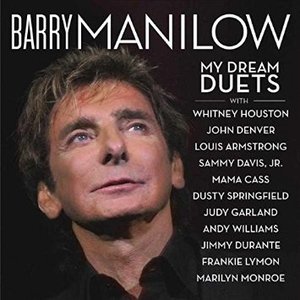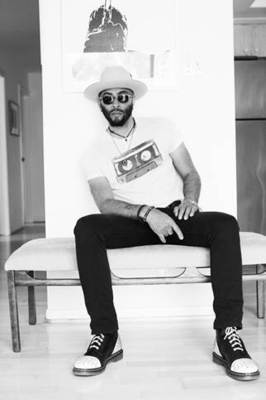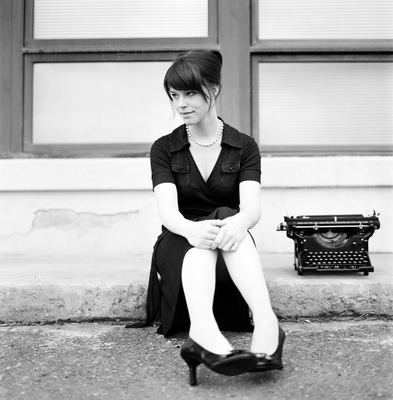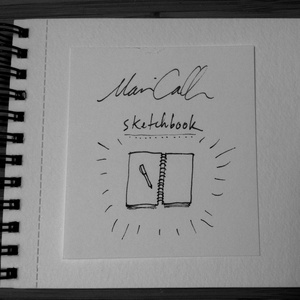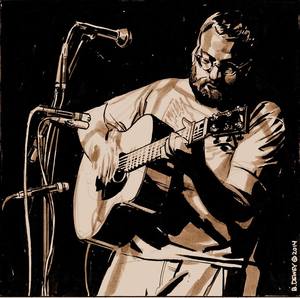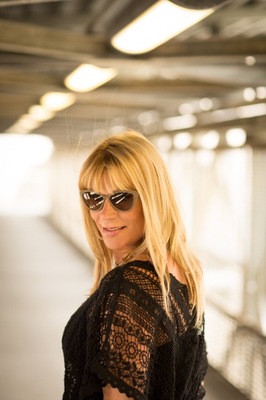A Conversation with Barry Manilow
Mike Ragogna: First off, thanks for the interview and it's a true blue spectacle that I landed it, Barry!
Barry Manilow: [laughs] Sure, sure.
MR: The concept for the album is pretty unique. I don't think anyone's done a whole album of posthumous duet tributes.
BM: Well, Verve, the record company that I'm on this month are great people and one of the guys I'm working with is a wonderful guy named Jay Landers who's a Senior Vice President there said, "What about you doing a duets album?" Of course, everybody's doing duet albums and some of them are pretty good, too, so I said, "Yeah, let me think about it." I said, "How am I going to make my duets album any different from all of these other duets albums that we're hearing constantly?" So I made a list of who I would like to sing with and as I started making my list I realized many of these people are gone. I would love to have sung with Judy and with John Denver who was a friend of mine and with Louis Armstrong and Sammy Davis Jr.. It would be my dream to have been in the music business when they were at their peaks. I said that to Jay and I said, "I know this is impossible," but he said, "It's not impossible."
Music technology has gone pretty far and there's this company that David Foster worked with who can actually remove the orchestra from these old records and just give me the vocals by themselves, which sounded amazing. It took them a long time to do eleven songs. They gave me eleven vocals by themselves. I'm pretty good at my music technology and I sat for two months creating eleven duets out of songs that never were duets. I rearranged the songs, I re-orchestrated the accompaniment and I made them into duets. I changed keys where I wanted to, I made bigger endings than they originally had, you can see that it's a different angle for every song. I've tried to stick pretty close to their original arrangements but I was able to play around with them and make them into duets. This album was a miracle. It took a lot of people to put this together with me. Now that it's all done, I'm very proud of it.
MR: On "I Believe In You And Me" with Whitney Houston, it's clear you love the original vocal, and you're not dominating the track. Actually, that's true for all of these duets. You have a lot of respect for them.
BM: I do. It was one of my goals to try and show the audience why these people were such legends. I didn't want to get in their way. Singing the duet with Whitney was the most challenging because her style is so far away from what I do. Her church vocal approach is so far away from my pop singing it took me days to figure out where I should sing, how I should do it, when do I harmonize with her, when do I leave her alone. I had to do this with all of them, but Whitney was the most challenging.
MR: You said they pulled the vocals out of the records, but did you pull at least some lead vocals from original 16- or 24-track tapes?
BM: I'd have to go back to David, my co-producer, but I would say maybe one or two were actually doing multi-track recording. The rest of them came out of the old scratchy records. I'm telling you, this is a miracle how these men made this record sound like I'm singing with them yesterday. They all sound beautiful. Their vocals sound like I was in the same room with them. Mike, I'm telling you, I ran for the tissues a lot on this project.
MR: How did you get through a recording process this intense?
BM: I'm telling you, it was a very emotional experience. I would put my headset on, they'd sing to me and I would get lost in it and then realize they're not there! This is when they were young and beautiful and in their prime, all of them. Andy Williams and Judy, this was at their peak. And then to think that they really weren't standing next to me when they may as well have been!
MR: Another interesting thing about this project is that there are songs on here that seemed like they were yours to cover already. For instance, "Sunshine On My Shoulders" seems like a perfect song for you. And there's the Andy Williams track...
BM: When I sang with Andy Williams, I was surprised to hear that I sounded so close to his voice. Now and again I would forget, "Which one is me and which one is him?"
MR: Are you happy that as you're maturing, you're taking on the soul and the depth of a lot of these classic artists who also matured into the artists they became?
BM: Please, it was an honor to do this. It's an honor to even hear you say that, but it was an honor to do this. Listening back to this whole album is just an amazing project for me.
MR: Does this make you want to do something like this again in the future?
BM: As I finished it up, I was talking with friends and I heard, "Why didn't you do one with George Harrison? Why didn't you do one with Marvin Gaye?" Why didn't I? I didn't think about it. I went through the big list but there are more. If this thing becomes popular, it would be great to do another one.
MR: As a producer, arranger and talent-discoverer it seems like you have to be in constant motion. Are you that guy?
BM: Listen, I keep coming up with ideas. The well hasn't run dry yet. I'm waiting to get bored, but an album like this for a performer it starts my motor going at a hundred miles an hour. If I can keep coming up with ideas like this I'll keep going. I've always got the next one. There's always "the next project" with me. Like I say, the well hasn't run dry yet. I'm ninety-five years old and I'm still promoting albums for God's sake.
MR: [laughs] No, no, not quite ninety-five. Hey, you were a wonderful mentor on American Idol. That experience must have been very fulfilling for you.
BM: It was surprising. These young people just don't know about the songs that I grew up with. They don't know anything from Irving Berlin or George Gershwin or Jule Styne or Stephen Sondheim, they don't know any of it and they don't get the opportunity to sing great lyric, they don't get the opportunity to sing a great melody anymore. In my catalog, there are good lyrics and there are good melodies, so when they sang "I Made It Through The Rain" and they started to do their doodling and their vocal acrobatics I would say, "Wait a minute. Why are you singing this song? Who are you singing it to? What does this word mean?" I would have to go through it line by line and I do think they did really well on that week.
MR: I'm sure you helped a lot of them because they'll think of that advice in the future. I'm often baffled by why a syllable needs that many notes.
BM: I think you're right. Whitney was one of the inventors of that kind of singing, but when I was listening to her do that song she sang the melody and the lyric in the beginning of the song. She didn't start doing those vocal acrobatics in the beginning. She sang the song the way the composer wrote it and told us what the story of the song was. Then as the song built, she dropped in the church. By the time she got to the last verse and chorus, she had earned the right to do whatever she wanted to do with this melody, but she had already told us what the song was about and then she started to drop in this fantastic way of singing. I'm telling you, she was the inventor of that kind of singing. But these days these singers start there and after a while how many notes can you sing in one bar? There's no emotion anymore, it's just, "Listen to how many notes I can do!"
MR: And yeah, when Whitney dropped the gospel into it, you heard the soul behind the notes, not just a lot of notes.
BM: Yes, you're absolutely right! It wasn't just singing notes for Whitney. Like I say, she had earned it. She was telling the story the way she wanted to, but not right at the beginning.
MR: Beautiful. Since we're kind of on the subject, what advice do you have for new artists?
BM: It all depends on who the artist is. My overall advice for young musicians and young artists would be to learn how to read music. I know it sounds dumb, but I'm telling you, man... Young musicians and young singers, learn how to read music. If you can read music, you'll always be able to work. If you can't, maybe you will become Whitney Houston, but that's a rarity. If you can read music, you can always work because you can do studio jobs, you can do commercials, you can do whatever you want and actually have a career and if you are really talented then great. But if you don't happen to luck into something like a hit single, then you can always work.
MR: That's really good advice. By the way, earlier, I wanted to add that your "What A Wonderful World"/"What A Wonderful Life" duet with Louis Armstrong was pretty clever.
BM: Yeah, it was kind of a challenge to write a brand new song that fit over "What A Wonderful World," but I think it came out okay.
MR: Were there any moments on the album where you discovered something about your duetist that you'd never known before?
BM: All of them. These people are not legends because of luck. Every single one of them had this little extra something that made them stars. The sound of Judy Garland's voice, there's something in her vocal chords that is just so appealing. She's one of the greatest acting singers of all time. The same thing with all of them. There's something special about all of them. I always knew it but having my headset on and them singing to me in the headset, it was really a very moving experience.
MR: And of course, with you being a writer, "The Song's Gotta Come From The Heart."
BM: [laughs] It does. Don't ask me where I found that one, but it was a ball to do that one.
MR: I know this isn't exactly what an artist with as extensive a career as you have wants to hear, but your first hit, "Mandy," was the first recording I ever heard by you and it played on New York's WNEW-FM. Loved it, and it still pops into my head from time to time.
BM: Thank you, Michael. It's the big one for me, too. It's the most moving one for me, too. Now it has become more than a song for me, it has become the memories of this young kid, I didn't know what I was doing really. I wasn't supposed to be a singer, I was supposed to be a musician. What was I doing behind the microphone and singing? When I think back on it, it's just an amazing moment for me.
Transcribed by Galen Hawthorne
******************************
Andre Cymone Launches Campaign With Congressman Keith Ellison to Encourage Voting In Midterm Elections
According to the Andre Cymone camp...
Andre Cymone has released a new song, "Vote," with the hopes of spreading the word and encouraging people to vote in the upcoming mid-term elections. The song can be streamed at The Huffington Post.
"Vote" is presented by Cymone in conjunction with Congressman Keith Ellison of Minnesota, who adds, "Our neighbors and friends are counting on us to vote on November 4th. As Andre puts it so well: 'if you don't vote, then you can't complain.' This song is a powerful reminder that our votes make a difference -- from standing up for civil rights, to expanding economic opportunity."
Cymone explains the new song:"I was inspired to write the song vote from my frustration with our American political system and how it seems most American can't simply get their head around how it actually works. So I thought as a song writer what's the simplest way to get people to understand the importance of voting. So I picked up my guitar and within a few minutes came up with guitar riff and the hook, "if you don't vote, you don't count." Then I thought of all the conversations I've had over the years with friends and family trying to talk them into voting and it didn't take long to come up with the rest of the lyrics. For me personally voting in the midterm elections for congress is just as important, maybe even more than voting for president."
Andre Cymone adds...
This is the most important election of our lifetime,
It is a classic battle of right and wrong...We live in a culture where it's cool to be disengaged
from the world's bigger picture, a culture where we take everything for granted.
Forget that people fought and died for us to enjoy this way of life,
forget that they died for our very right TO vote...Perfection didn't come with our right to vote,
We have to keep fighting for that perfection.
Those folks who died for us handed us the baton and we sat down and had a latte...
Well now we gotta get up and pay the check, we gotta vote...The fight is not over...
There are two sides in this battle, one side that cares about fairness
for the average american and their future and the other side that cares about
fairness for corporations and big business.
Your vote gets to decide who represents the future of america,
It's that simple and the choice is that clear.It's your vote, it's your choice and it's your time so please, VOTE...
If for nothing else vote for those who died so you CAN vote. Vote for the children who can't vote.
Vote to make a difference...If you don't vote, you don't count...
******************************
THE HAWTHORNE CHRONICLES
Galen Hawthorne (where have I seen this name before?) is once again energized about a musical entity, this time around, an ambitious indie artist, Marian Call. Below is his introduction to the non-indoctrinated of this artist's music plus interviews of both Call and her trusty guitarist, Scott Barkan.
Introducing Marian Call by Galen Hawthorne
Acoustic folk rock. Alaska. Volvos. Star Trek. Funny Hats. Acerbic wit. Typewriters. A well-told story. Battlestar Galactica. If you've ever wanted all of these things to happen to someone's home or a coffee shop near you, you need to listen to Marian Call.
Marian Call is a singer-songwriter vocalist currently living in Alaska, although from the frequency of her touring you might not suspect it. She traces the country, hopping between coffee shops and fans' homes (her favorite types of venue) bringing soulful, playful, thoughtful songs backed up by a periodically rotating set of guitarists. This tour she's backed by Scott Barkan, a resident of NYC whose talents on the six string are ever on-point with her poignant and precise lyrical style.
Marian Call loudly and proudly proclaims her geekiness at every turn, with songs about Battlestar Galactica and Firefly and her smash hit (among the fans at least) "I'll Still Be A Geek After Nobody Thinks It's Chic," accompanied, of course, by the percussive sound of the typewriter that follows her on every tour. For those less attuned to the nerd side, her songs about friendship, love, loneliness, and the Alaskan frontier stir deep emotions in anyone lured by her unique and beautiful melodies and rhythms.
To see Marian Call on tour is to spend a night with an old friend you've only just met. In between songs, she freely talks and jokes with the audience, sharing stories, asking questions, and thanking everyone yet again for coming out tonight. The call she puts out to fans while planning a tour can lead her to headlining living rooms, back porches and front yards, but she fills any space with a warmth and friendliness that may surprise even avid followers of the singer-songwriter ilk. Her current tour, "From Portland To Portland And Back," is only halfway through, so our readers may just be able to RSVP to a home nearby--or just come out to a coffee or comic book shop on the list if you're feeling shy. Either way, if you're a nerd about sci-fi or a nerd about singer-songwriters come see Marian Call and Scott Barkan on tour!
Marian Call's website (featuring tour dates!) is http://www.mariancall.com
Scott Barkan's website is http://www.scottbarkanmusic.com/
A Conversation with Marian Call
Galen Hawthorne: Give us a little about the 2014 autumn tour.
Marian Call: This is the Portland to Portland tour! Fans in Portland and Maine always get confused and disappointed when I don't mean "their" Portland, so this trip goes from one to the other! My first concert was at XOXO Festival in Portland, Oregon. I also recorded a live show in Seattle. Then I headed east and began playing all over the Midwest, nearly every state north and east of Iowa, in fact, plus Toronto and Montreal. I hit the Eastern Seaboard and Portland, Maine in October, and then I head west again, hitting Colorado and Utah on my way back to Portland, OR for a final wrap concert in November! I've released two albums, a set of originals called Sketchbook and an album of cover songs called Marian Call Sings the Classics vol. I so there's a lot of new material on this tour. There are a lot of house concerts, but then house concerts are my favorite kind of concerts. I think everyone should host and attend them more often, they're the best way to hear music.
GH: You tour so frequently, you must enjoy it somehow. Do you find you really get something important out of it beyond promotion?
MC: The food! The scenery! The friends all around the country! I truly love traveling. I do it more than I'd like and faster than I'd like, but all the same, it's not a bad life. I was never really interested in the US but now that I know it all so well, I really love it. And I love seeing familiar cities and highways and people over and over again. But mostly the food. Let's be honest.
GH: What have you been most excited for the on this tour?
MC: If you mean excitement as in suspense, I'm excited to see whether my car holds out! I've been driving her pretty hard and this will be her last tour. I'm also excited for (again) food and people. And I get to play some cool venues: Fermilab, the particle accelerator, and Fiske Planetarium in Boulder, plus a Halloween concert that is sincerely at a secret laboratory in Denver. Plus a number of comic shops and game stores.
GH: What has been or will be a challenge on this tour?
MC: It's always a challenge bringing people to shows. There are often hundreds of fans in a city who don't come, and there's a ton of work that goes into getting just a small percentage of fans excited enough to show up at a concert. I'm so grateful for everyone who turns out, and I work really hard to make sure everyone in a city has a chance to hear about the show. Still, with all the chatter and noise in people's lives lately, it's hard to cut through.
GH: Give us a little rundown of your current album, Sketchbook.
MC: My latest record was a surprise to most fans, out of nowhere, because I made it sort of privately on the road. A couple of songs began in the studio, but most were recorded in the homes of people who hosted us while we traveled the country last year. Normally my albums are big and sweeping and collaborative, this was small and raw and intimate and personal. Because it's short and the audio quality isn't perfect, I wanted to be sure people know what they're buying -- so I called it Sketchbook, which fit the nature of the songs, and I used recycled cardboard packaging that I stamp and illustrate by hand. There's even a space for the album owner to do their own doodling while they listen to the album--the CD jacket for Sketchbook is a sketchbook.
GH: What's your general writing process like for an album?
MC: I mostly write about very concrete scenarios or characters or objects, not so much my feelings. I avoid love and romance mostly, I'm more interested in science, geography, psychology, our relationship to time, the natural world, sharks and bears and dinosaurs. I suppose I think of a concrete scenario or situation--real or fictional--and try to figure out how that sheds light on the way that all of us humans are the same at our core. I think love and romance have mostly been covered by other musicians.
GH: What's your recording process like?
MC: All my albums have been made so differently, I'm still learning! I'd like my recording process to be better, but as an independent artist the fundraising process and tight funds mostly dictate what I can do. So I tend to do recordings quick and dirty in the studio, encouraging my musicians to improvise and do their own thing, then I spend tons of hours editing afterwards to sculpt the soundscape that I want.
GH: Was there anything really different during the creation of Sketchbook?
MC: I mostly recorded Sketchbook myself, and usually under less-than-ideal circumstances -- waiting for a truck to go by outside, shooing a meowing cat out the door, forgetting to plug in my laptop and losing a take, things like that. It was really homemade. That said, I got a better vocal sound than I've had on other records, because I tried to let it be really raw and honest -- and because I was in the middle of touring, which is both the most stressful and the most rewarding thing I do.
GH: I see you have a cover album now, too, with a pretty wild assortment of tracks. Tell us about the Kickstarter that led to it and maybe go over how you picked out some of the songs that went on it.
MC: I did a very successful Kickstarter back in 2012 for my first live album and a tour of Europe, and as part of the stretch goals for that Kickstarter, I agreed to do some cover songs, which I rarely do because of the licensing fees. I chose music that was formative for me--everything from Beatles to They Might Be Giants to cartoon show theme songs--and I know a lot of those songs resonate with my fans. It's been really fun working on "Reading Rainbow" and Muppets songs for a change!
GH: You do covers during your live shows, but how was recording a cover album different from recording your own albums?
MC: Covers are a lot more fun and lighthearted live, but recording them is nervewracking -- you love and respect the original, and you want to do it justice. You want your fans to know how much you adore the work and bring something new to the song without being gimmicky or flippant about it. Striking that balance takes a lot of thought and preparation as well as a little audacity.
GH: What advice do you have for new artists?
MC: Take a good look at the innovative things other artists are doing, especially artists you respect--but know yourself, know your audience, and don't copy others just to copy them. Don't do a Kickstarter just because everyone's doing a Kickstarter, don't jump on a new website just because people tell you that you should; really investigate what works for you, because your own path will probably not be exactly like anybody else's right now. There are more ways to have a little success in art than ever before, and also more ways to be disappointed. Also -- day jobs are great. Artists without day jobs spend the time you *would* spend at a day job doing boring promo work or updating websites or driving, not doing extra art. It's still the same struggle to find time & resources to create new things, except they have no safety net. Work on your craft. You can't skip that part. Being pretty good is not good enough. Even if you only plan to play three chords, know how to play every chord in every key without a capo. Even if you only plan to play in one style, get competent in every style. You need to be really good and really experienced and really hardworking to stand out right now, because there are more people in the game than ever before. Spend your 10,000 hours on your craft, because no amount of online gimmicks and promo will make up for that. And last, make sure you know why you want to make your art. Do you crave an audience? That's the wrong reason to be an artist. If you crave an audience you probably need therapy first. Do you love making your art? Do you find yourself and your reward in the making of it, even if nobody notices and nobody's listening? That's a much better place to be.
GH: What's down the line for Marian Call? Any pie in the sky projects right now?
MC: I'd love to spend more time blogging about what I've tried over the years, about what's worked and hasn't worked. Like the 50 States Tour, the Pseudo-Scholarship Fund, about music streaming vs. downloads, that kind of thing--there's not much time for that now, but I want to do more writing in the future. Maybe a book someday, who knows. There's a new holiday EP due out in December, as well as a new studio album on the horizon for next year. And more cover songs coming too. So much music!
GH: Tell me a joke if you've got one.
MC: What's brown and sticky? A stick.
A Conversation with Scott Barkan
Galen Hawthorne: Your website says you're an indie/folk/roots/jazz/blues/avant/rock guitarist and songwriter from New York. Help me sort out what all that means and tell me how it happened to you.
Scott Barkan: Well, I've always been a songwriter ever since I started playing guitar when I was 10, but as I progressed on the instrument I got more deeply into jazz and experimental guitar music, especially during and just after college. I went through a long period of only playing weird, angular, improvised, instrumental guitar music, and only somewhat recently have I come back to focusing on songwriting and getting more deeply into the acoustic guitar. These days I'm trying to make it all work together.
GH: You're currently touring with Marian Call, but fill us in on what your musical life is like in New York. What do you play and where?
SB: When I'm not on the road with Marian, or one of the other artists I play with, I gig around NY at a wide variety of clubs & bars. These days I've been spending a lot of time working on my own thing but still do quite a bit of sideman gigs. Gigs where I'm playing my own music have become pretty evenly split between solo acoustic shows and electric trio shows. Both hold different challenges, I've really had to rework my approach to the acoustic guitar to be able to support myself and improvise when playing solo, whereas playing electric in a trio format is what I've always done, so that's super comfortable for me. I love the intimacy that playing solo gigs offers, but the trio allows me to really cut loose and experiment with the improvisational aspects of the tunes. This winter I recorded and released two tandem live records, one called "solo/acoustic/live" and one called "trio/electric/live," with the intention of highlighting the two different approaches to the music.
GH: Give us a little bit of your history with Marian. You said at the concert you've played with her for six years?
SB: Yeah, we've been at it a long time! We famously met through Craigslist when I was living in LA. She claims I was the only person who answered her call for guitarists in complete sentences, and that's what got me the gig.
GH: Is it challenging, coming back to the material after a year apart?
SB: Actually, we've played together so much now that it's pretty natural feeling. What's interesting is seeing how things change when you come back to them after a long time off. Marian is very generous with what she allows me to get away with in my interpretations of her music. I try to keep things fresh by changing it up as much as possible within the framework of the tunes, but she also loves to improvise which is why I think we work together so well.
GH: What kind of rehearsal process did you guys have if any?
SB: Honestly, I'm reluctant to admit we hardly rehearse at all. Marian always has charts for everything, so if there is something new she'll just hand me a chart and we'll go for it. More often than not we will just try new tunes out for the first time at a gig with no prior rehearsal. It pretty much always works out fine.
GH: How much of the tour will you play?
SB: I'm on this run for about a month.
GH: What have you been most excited for on this tour?
SB: Well, this year we haven't played together nearly as much as in recent years, just due to scheduling mostly, so I'm just excited to be able to fit this run in!
GH: What has been or will be a challenge on this tour?
SB: We are just getting started so so far everything has been pretty smooth!
GH: Do you have any advice for new artists?
SB: I don't know how qualified I am to give career advice, but the best thing I can say is focus on being awesome at whatever you're doing and getting in front of people to do it often. I see so many young artists focusing on social media and marketing and missing the fundamentals of just being great at what you're doing first and foremost. If you can deliver the goods in a live setting, get people to stop eating and talking and turn their heads to check out what you're doing, the rest will come.
GH: What's in your future? Any big projects planned? Maybe a solo or trio tour? What's the big dream for Scott Barkan?
SB: I'm about halfway through writing material for a new record, which I hope to record in the spring, and I always have tours on the horizon and gigs around NYC. You can see what's going on at http://www.scottbarkanmusic.com. The big dream really is to just keep doing what I'm doing. I've got a bit of momentum now and hopefully that will just keep building!
******************************
"IT'S ALL GOOD" BY CARROLL MATTHEWS
According to the Carroll Matthews camp...
"Singer/songwriter Carroll Matthews just released her third album, Rush, this past spring. The album is her first to include original songs and is the result of her collaboration with her co-producer, musical director and pianist Jeff Franzel. Rush is full of inspirational songs about rebounding from life's disappointments, loving the person you are and celebrating the excitement of finally hearing your own songs on vinyl, which is the exact meaning behind the first single and video for 'It's All Good.' Co-produced by Ben Lindell and Doug Larsen with Jeff Franzel, Rush follows two covers albums, 2011's Timeless and last year's Enchanted Cottage which was produced by 9x Grammy-winner Jay Newland. With the release of Rush, Carroll has finally discovered what she was meant to do all along. The singer says it best, 'I love to sing. Put a microphone in my hand, and I'm a whole different person. I'm more comfortable doing this than having a conversation at the dinner table.'"

